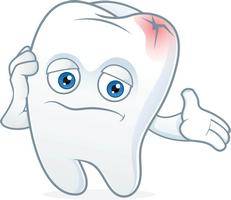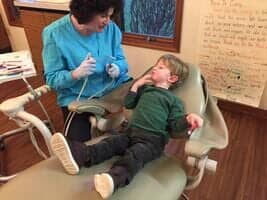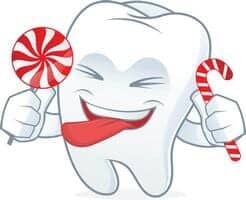
Special Child Dental Care in Hamburg, NY & The Southtowns
Dr. Casey's
role in the community includes one as dental health educator. It is critical for children to learn how to maintain optimal dental health with regular dental visits, making smart decisions about the foods and drinks they consume, and proper home oral care routine.
February is Children's Dental Health month and each year Dr. Casey reaches hundreds of children while visiting multiple pre-schools, day cares and elementary schools. For over a decade, she has given dental health presentations at schools in the Hamburg, Frontier, and Orchard Park school districts. She has also made presentations on behalf of the SUNY at Buffalo School of Dental Medicine's Smile Education Day for twenty plus years.
February is Children's Dental Health month and each year Dr. Casey reaches hundreds of children while visiting multiple pre-schools, day cares and elementary schools. For over a decade, she has given dental health presentations at schools in the Hamburg, Frontier, and Orchard Park school districts. She has also made presentations on behalf of the SUNY at Buffalo School of Dental Medicine's Smile Education Day for twenty plus years.

We have also had pre-doctoral dental students observe at the office when considering applying to a pediatric dental residency. College students have visited to observe the function of a private dental practice as a small business model. Dr. Casey has also participated are career fairs at local high schools.
Please contact the office if you would like Dr. Casey to give a dental health presentation to a student or youth group you are involved with.
Please contact the office if you would like Dr. Casey to give a dental health presentation to a student or youth group you are involved with.
FREQUENTLY ASKED QUESTIONS
1. What should I do in case of an emergency or mouth injury?
In case of injury, bleeding, pain, or infection, we will always see your child as soon as possible. If your child should injure a tooth, call the office immediately. We can decide whether immediate treatment is necessary. If a tooth is knocked out, place it in a cup of milk and call the office at once. Dr. Casey uses a cell # so she may be reached at any time if an emergency occurs after office hours.
Call the office at (716)648-4035 if you have a dental emergency.
Call the office at (716)648-4035 if you have a dental emergency.

2. How to prepare your child for a dental visit?
You may discuss the positive aspects of dentistry with your child, but avoid fear-provoking words such as pain, drill, pull, shot or needle. We use words such as ‘feeling fuzzy” to describe numbness, “wash the tooth and paint it” for a filling and “wiggle or help out a tooth” for an extraction. Avoid statements like “the dentist won't hurt you,” but rather, say “the dentist will be very gentle while working.” At the time of the visit, we will prepare your child by explaining and showing him/her what will be done with age appropriate terms. Parents should try to appear relaxed and at ease because anxiety on your part will be sensed by your child. A parent or legal guardian must accompany your child to their initial appointment.

3. Why treat baby teeth?

4. How does a pediatric dentist help with dental anxiety?


